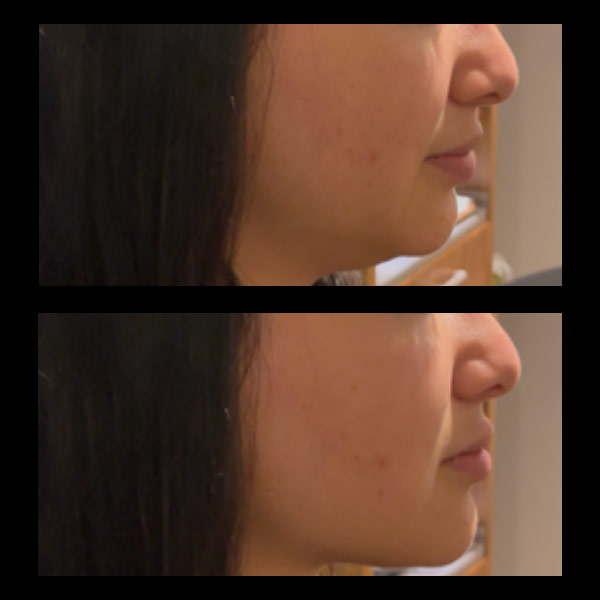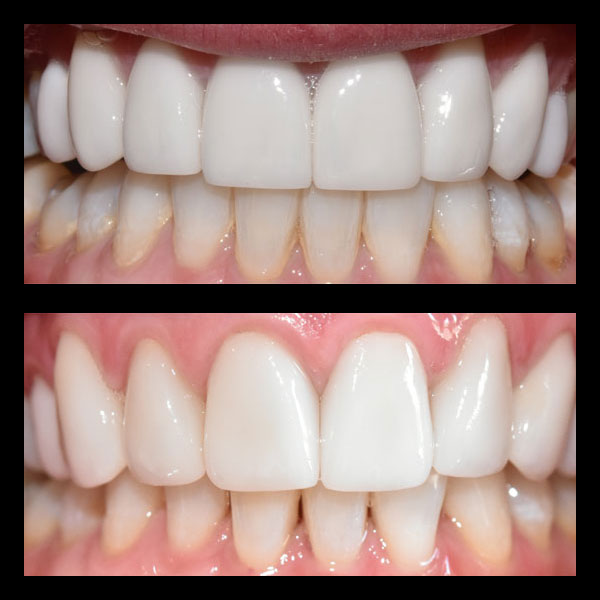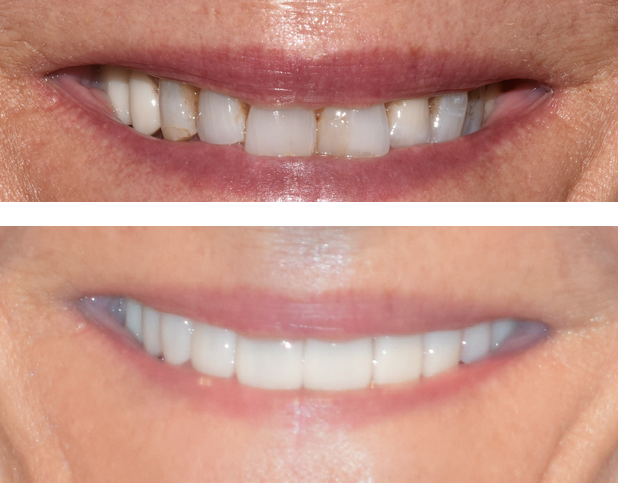Whatever the cause of your gum recession, know that brushing too vigorously is likely not the cause, and there are solutions.
We’ve all heard it before… “Don’t brush so hard,” or “Use a softer toothbrush.” Unfortunately it’s not that simple. So… you ask, what exactly is gum recession, and what can I do about it? Gum recession is what happens when tissue is no longer able to attach to a tooth. When the tissue recedes, we know that the bone has resorbed. In other words, the bone resorption occurs first, and the tissue follows the bone. Bone loss and tissue recession can occur in a single tooth, multiple teeth, and sometimes it is everywhere.
Exactly how does that work?
Ideally the upper and lower teeth come together in a manner that serves chewing, speaking, and other joint functions. The teeth should be positioned straight up and down and the upper arch and lower arch should work in harmony. When the arches come together, the surfaces of the teeth have a proper occlusion (bite). That means the cusps touch in very specific places. Without proper occlusion, the forces of biting are directed incorrectly, placing undue stress on the bone and the wheels of bone loss and tissue recession are set in motion.
Think of the bite like a hammer, a wide nail, and piece of wood. The teeth are like nails, and the driving force of biting, chewing and even clenching and grinding are the hammer. If you stand a nail up perfectly straight in the piece of wood then bring down the hammer with equally straight force, the nail will drive snugly and cleanly into the wood, and the wood and nail maintain their integrity. If you set the nail sideways, then bring the hammer straight down into it, the wood splinters and cracks and the nail will lack stability and the nail may even bend. Over time teeth that are tipped or not in ideal alignment with the opposing teeth will stress the area around the teeth. Less than ideal force encourages bone-loss, tissue recession and the breakdown of the tooth structure. Signs of tooth structure breakdown are: chipping, cracking, wear and notches at the gum line.
Can I correct this type of recession?
Whether your teeth are crooked, crowded, tip in or out, are rotated, or you clench or grind, you can slow the process of recession, and with orthodontic treatment, prevent it from progressing further. For some people it’s as simple as wearing a clear plastic retainer to maintain the position of the teeth and prevent the teeth from continuing to tip and move. For others, a night guard is appropriate for the prevention of grinding and clenching during sleep. For people with more prominent gum recession, or concern that existing recession will continue to worsen, the best course is to change the position of the teeth with simple orthodontic treatment. At Incredible Smiles, Dr. Lori Kemmet favors Invisalign over other orthodontic methods for the ease, comfort, and convenience. Many patients can be treated in as little as five to six months using clear aligners that gently move the teeth.
How do I know if my gum recession is alignment oriented?
Look at your teeth! Are they tipping in, tipping out, rotated, overlapping? If yes, and you have recession, it is likely alignment related. A good bite feels good and looks good. Your upper front teeth should close in front of your lower front teeth with a little overlap so the lower teeth are still visible.
Whatever the cause of your recession, know that brushing your gum tissue too vigorously is likely not the culprit. And there are solutions for preventing gum recession from worsening. In extreme cases a tissue graft procedure with a specialist is needed. If you decide to graft to cover the recession make sure the biting forces are correct so the progress made with grafting is not lost. Also, find a dentist who is open to considering that the recession is related to your bite. If they insist gum recession is solely a result of brushing too hard, consider finding a new dentist who understands bite forces.
Dr. Lori Kemmet of Incredible Smiles, offers free initial consultations. Book yours today, and find out how you can prevent gum tissue loss.








